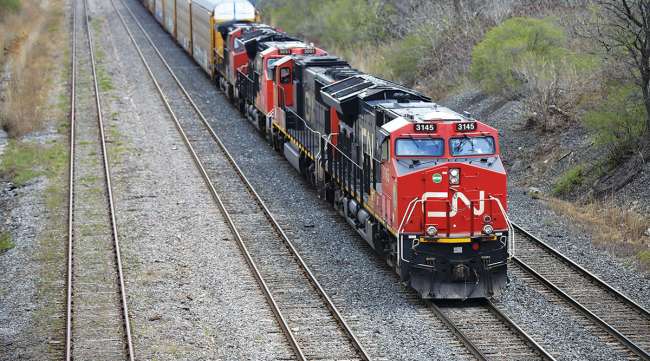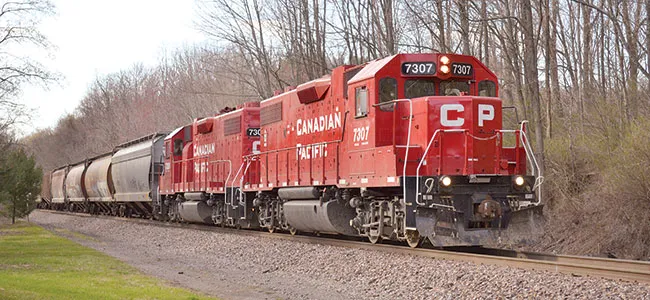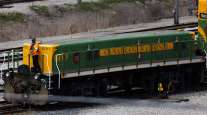Staff Reporter
CN Seeks Binding Talks With Teamsters in Labor Dispute

[Stay on top of transportation news: Get TTNews in your inbox.]
Canadian National Railway amped up pressure on the Teamsters Canada Rail Conference to resolve an ongoing labor dispute with potentially wide-ranging impacts across North American supply chains.
The railroad operator offered to enter binding arbitration with the union in the hope of settling a long-standing dispute running in parallel with TCRC talks with Canadian Pacific Kansas City Railway.
CN said its June 6 offer to TCRC was the result of the union rejecting all the railroad’s offers and exiting voluntary arbitration. CN and the union restarted talks with an independent arbitrator May 17. CPKC and TCRC returned to the negotiating table the same day.
A day before on May 16, CN revised its offer to the Teamsters, with the changes centering on nixing hourly rates and scheduling proposals. The union rejected the offer, CN said.
Union members at CPKC and CN authorized strike action May 1 involving a combined 9,300 railroad employees.

A Canadian Pacific train. That railroad and Kansas City Southern merged in 2023. Union members at Canadian Pacific Kansas City Railway and CN authorized strike action May 1 involving a combined 9,300 railroad employees. (David B./Flickr)
Gridlock due to a strike on both rail networks would see unprecedented Canadian over-the-road trucking rates, Mark McKendry, NFI Industries senior vice president of intermodal, told Transport Topics in May. Canadian over-the-road capacity cannot absorb the volume of freight that rail presently moves, he added.
NFI ranks No. 16 on the Transport Topics Top 100 list of the largest for-hire carriers in North America and No. 23 on the TT Top 100 list of the largest logistics companies.
TCRC said June 7 that it offered to stagger negotiations to avoid simultaneous work stoppages, but the offer was rejected.
“Staggering the negotiations is a sensible solution that would minimize disruptions and allow all parties to address their concerns in a more structured and productive manner,” TCRC President Paul Boucher said.
“CN and CPKC’s rejection of this proposal is a clear indication of how little they care about the economy and the supply chain, as well as their unwillingness to negotiate. Quite frankly, they are using multinational corporations, the Canadian public and North American supply chains as pawns to further their own greed,” he added.

O'Regan
Industrial action was originally due to start May 22, but federal Minister of Labour Seamus O’Regan stepped in May 9 by referring the disputes to the Canadian Industrial Relations Board.
CIRB must determine whether the movement of propane on the CPKC network and shipments of heavy fuel, propane, food and water treatment materials on CN’s network must be maintained.
A strike across either network cannot start before the CIRB issues a decision, and both railroads said a decision is unlikely before mid- to late July after the agency extended the deadline for case management conference submissions until June 14.
Regardless of the CIRB referral, CKPC said May 9: “Our standing offer to the TCRC leadership is that we both agree to resolve this labor dispute through binding arbitration so that we can avoid a work stoppage that is detrimental to the interests of all stakeholders.”
Want more news? Listen to today's daily briefing above or go here for more info
About 70% of freight moving among Canadian metropolitan areas and half the country’s export volume is transported by rail.
Meantime, carriers and shippers continue to prepare for any stoppage.
In May, C.H. Robinson Worldwide vice president of North American surface transportation Scott Shannon said, “At this point, our customers are primarily looking for over-the-road options. We’re helping shippers make alternative plans now because a typical freight train carries the equivalent of 300 truckloads, and trucks will fill up fast.”
C.H. Robinson ranks No. 2 on the TT Top 100 logistics list.
Automakers and refrigerated shippers are expected to take some of the biggest hits if there were to be a strike across the two railroads.




